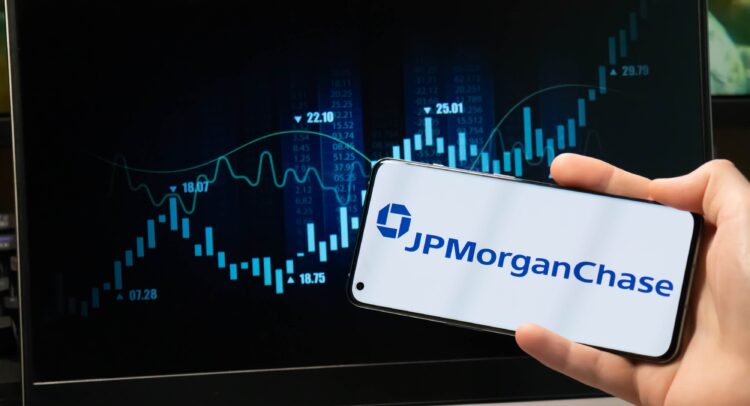Analysts at JPMorgan Chase (JPM), the world’s biggest bank, are warning investors to expect lower stock market returns over the next decade as high-flying technology stocks come back to earth.
Pick the best stocks and maximize your portfolio:
- Discover top-rated stocks from highly ranked analysts with Analyst Top Stocks!
- Easily identify outperforming stocks and invest smarter with Top Smart Score Stocks
Over the next decade, the average annual return of the benchmark S&P 500 index is likely to be 5.7%, according to the analyst team at JPMorgan. That would be roughly half the 10% annual return of the S&P 500 since the end of World War II in 1945.
Reversion to the Mean
JPMorgan says it used a complex mathematical model to forecast likely returns for the S&P 500 in the coming decade. However, the analysts also said that their outlook for diminished returns is based on current stock valuations being unsustainably high and the market’s performance being driven by a handful of mega-cap technology stocks such as Nvidia (NVDA) and Meta Platforms (META).
The analysts point out that, over time, stock valuations revert to the mean, which should translate to lower returns for investors in the coming years. With a current trailing price-to-earnings (P/E) ratio of 23.7 times, the S&P 500 index is about 25% more expensive than its 35-year average of 19 times.
JPMorgan also notes that an aging global population could pull stock market returns lower as older investors tend to favor more conservative assets such as bonds. Rising tax rates to reduce budget deficits could also hurt returns going forward, said the bank. The S&P 500 index is up 19% so far this year and has gained 88% over the last five years.
Is JPM Stock a Buy or Sell?
A total of 20 Wall Street analysts have a consensus Strong Buy rating on JPM stock. Among the analysts, 16 rate the stock a Buy and four rate it a Hold. There are no Sell ratings on the stock. The average price target on JPMorgan’s stock of $224.13 suggests 7.11% upside from where the shares currently trade.





















